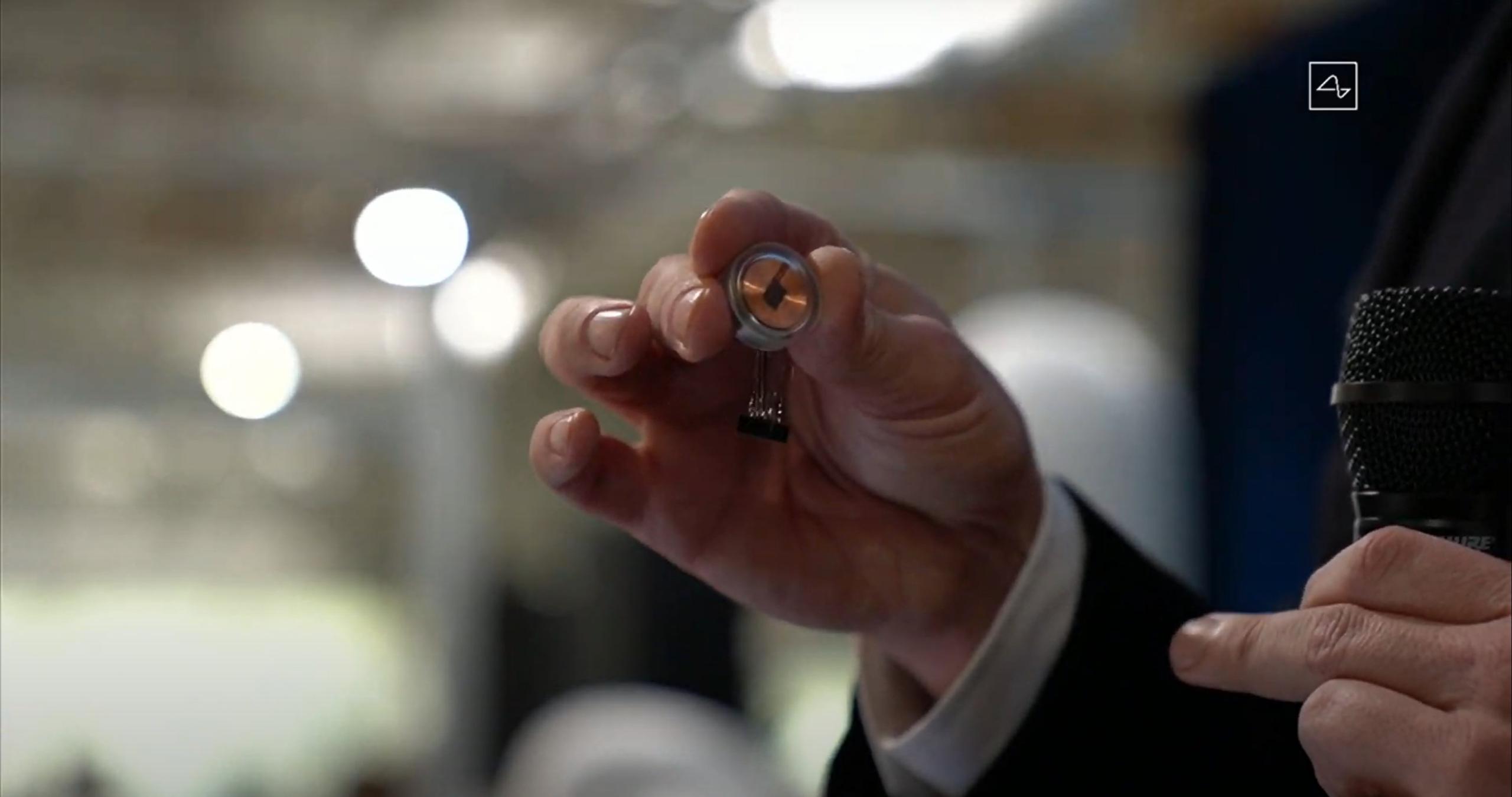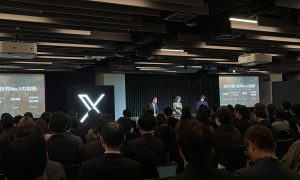

News
Neuralink shouldn’t solve Anxiety and Depression disorders
Neuralink aims to treat some of the most severe and damaging neurological diseases on Earth. In terms of Alzheimer’s, dementia, and epilepsy, a Neuralink device would be a great way to prevent these diseases from ruining everyday life for those who have been affected by them. With that being said, Neuralink needs not to treat anxiety and depression disorders, because those illnesses require human reaction and vulnerability to treat. Defeating anxiety and depression should be done without the help of a complete fix, and it is crucial not to look past the importance of humans being able to feel these two sensations.
This is something I feel very strongly about for several reasons.
Before I dive into those reasons, I want to explain why I feel qualified enough to take a stance that I think many supporters of Neuralink will disagree with.
I have dealt with clinical anxiety and severe depression for my entire life. I was clinically diagnosed in 2009 at the age of 14 with both of these disorders, and I would estimate that it took me around 11 and a half years of diligence on my part to begin living a normal life. My anxiety and depression disorders hindered me from doing a lot of things in my life: playing certain sports, moving away for college (on multiple occasions), keeping past jobs, committing to relationships, etc. It has affected me in the worst way for so many years, and I would never want anyone, even my worst enemy, to experience the things that I felt on a daily basis when I was under the control of these two diseases.
However, I don’t think that everyone should completely rid themselves of anxiety and depression. Why? Because they are two emotions, as humans, we need to have.
Anxiety, while painful and difficult to confront head-on, is necessary for some reasons. The first being the obvious, anxiety is an excellent way to sense when danger is near, and it is a crucial part of our fight or flight response. It can warn someone when there is an issue with what is going on near them and can be life-saving in certain circumstances.
Anxiety also is an opportunity to grow as a human being. Facing and confronting anxious thoughts is one of the best ways to test resilience and learn about what we are made of. Anxiety teaches us a lot about ourselves, and while frightening, facing it directly is one of the best ways to show that we can push through certain circumstances that we aren’t confident about.
This is a preview from our weekly newsletter. Each week I go ‘Beyond the News’ and handcraft a special edition that includes my thoughts on the biggest stories, why it matters, and how it could impact the future.
A big thanks to our long-time supporters and new subscribers! Thank you.
Depression, while more severe in my own experiences, also has its advantages. Without darkness, we wouldn’t know what light is. Without depression, we wouldn’t know about happiness. There are points where humans need to face adversity and challenging circumstances to feel the great things about life.
Now, the way I treated my anxiety and depression disorders was a clinically-focused approach. I regularly attended therapy sessions, took medication, and spoke to doctors as often as I could. While I wholeheartedly believe everyone should talk to a therapist at least three times a year, I disagree with taking medications. In my experience, they are a masking agent for anxiety and depression disorders, especially. They caused me more problems after I started taking them, and the side effects needed treatment on their own.
I believe the best way to treat disorders like anxiety and depression is solely up to the person who is dealing with them. When I started to make real progress with my issues, I began using Exposure Therapy to treat my problems. I did as many things as I could that scared me. This included long drives by myself, roller coasters, and doing more things independently. When I started doing these things, I had stopped taking medication, and my self-diligence started to solve the problems I was facing.
I am in no way condoning that medication is not a wrong way to initially treat these illnesses. However, I do not believe that the healthy dose of side effects that come as a result of taking these medications is helpful to anyone who is being treated for either disorder.
This is where my issue with Neuralink comes in.
I believe that Neuralink intends to completely remove these sensations from a person’s emotions, which I feel can be dangerous to the future. Taking away emotions from humans can be detrimental to the way people communicate with each other and respond to specific events. As hazardous and as stressful as dealing with any mental illness is, solving them requires a long and tiring fight. It is not easy, but anything in life that is worth doing rarely is.
I believe very strongly that removing emotions from humans is one of the most dangerous things that anyone could do. At what point will devices like Neuralink completely take over the human brain? When will emotions begin to disappear from people? Could it lead to a decreased amount of social interaction? How would that make us any different than robots?
It is dangerous, in my opinion, to remove core emotional responses from a human. Nobody wants to be depressed, and nobody wants to be anxious. But treating these diseases is done by finding out who we are as people. It requires us to go out of our comfort zones and grow, not put a chip in our heads or a pill in our throats that eliminates the possibility of feeling certain sensations.
There comes the point where our humanness needs to be preserved. The invention of Smartphones has taken away a lot of opportunities for face-to-face interaction, and there is plenty of evidence to suggest that anxiety and depression disorders are caused by these devices, especially through social media use.
I am interested to hear other points on this matter because I know some people have different experiences with anxiety and depression than me. One thing I’ve always loved is hearing other people’s stories about how their anxiety or depression changed their lives. It usually starts with a valley and turns into a peak. While this can differ from case to case, two people rarely have identical stories when talking about their experiences. They also, frequently, are different from one case to the next because of how we obtained anxiety or depression. Some get it through abuse, and some get it from other forms of trauma when their brain is developing.
Neuralink is yet another brilliant idea from Elon Musk. It will hopefully change the way certain neurological diseases are treated and can provide some insight into what causes these medical conditions. However, there has to be boundaries and taking emotions and psychological responses away, in my opinion, is not the right thing to do. To quote Dr. Martin Luther King Jr., “Darkness cannot drive out darkness; only light can do that.”
I use this newsletter to share my thoughts on what is going on in the Tesla world. If you want to talk to me directly, you can email me or reach me on Twitter. I don’t bite, be sure to reach out!
News
SpaceX’s Crew-11 mission targets July 31 launch amid tight ISS schedule
The flight will lift off from Launch Complex 39A at Kennedy Space Center in Florida.

NASA and SpaceX are targeting July 31 for the launch of Crew-11, the next crewed mission to the International Space Station (ISS). The flight will lift off from Launch Complex 39A at Kennedy Space Center in Florida, using the Crew Dragon Endeavour and a Falcon 9 booster.
Crew Dragon Endeavour returns
Crew-11 will be the sixth flight for Endeavour, making it SpaceX’s most experienced crew vehicle to date. According to SpaceX’s director of Dragon mission management, Sarah Walker, Endeavour has already carried 18 astronauts representing eight countries since its first mission with NASA’s Bob Behnken and Doug Hurley in 2020, as noted in an MSN report.
“This Dragon spacecraft has successfully flown 18 crew members representing eight countries to space already, starting with (NASA astronauts) Bob (Behnken) and Doug (Hurley) in 2020, when it returned human spaceflight capabilities to the United States for the first time since the shuttle retired in July of 2011,” Walker said.
For this mission, Endeavour will debut SpaceX’s upgraded drogue 3.1 parachutes, designed to further enhance reentry safety. The parachutes are part of SpaceX’s ongoing improvements to its human-rated spacecraft, and Crew-11 will serve as their first operational test.
The Falcon 9 booster supporting this launch is core B1094, which has launched in two previous Starlink missions, as well as the private Ax-4 mission on June 25, as noted in a Space.com report.
The four-members of Crew-11 are NASA astronauts Zena Cardman and Mike Fincke, as well as Japan’s Kimiya Yui and Russia’s Oleg Platonov.
Tight launch timing
Crew-11 is slated to arrive at the ISS just as NASA coordinates a sequence of missions, including the departure of Crew-10 and the arrival of SpaceX’s CRS-33 mission. NASA’s Bill Spetch emphasized the need for careful planning amid limited launch resources, noting the importance of maintaining station altitude and resupply cadence.
“Providing multiple methods for us to maintain the station altitude is critically important as we continue to operate and get the most use out of our limited launch resources that we do have. We’re really looking forward to demonstrating that capability with (CRS-33) showing up after we get through the Crew-11 and Crew-10 handover,” Spetch stated.
Lifestyle
EV fans urge Tesla to acquire Unplugged Performance for edge in fleet and security industry
Unplugged Performance has built a name for itself by producing performance upgrades for Tesla vehicles.

A growing number of Tesla enthusiasts and longtime community voices are calling on the electric vehicle maker to acquire Unplugged Performance, a California-based aftermarket company best known for tuning Tesla vehicles and developing specialized government fleet solutions under its UP.FIT division.
The idea was once considered a niche proposal among EV fans, but it is now gaining serious attention not just as a performance play but as a strategic move to deepen Tesla’s roots in the fleet and security industry.
A strategic fit
Unplugged Performance has built a name for itself by producing performance upgrades for Tesla vehicles, from track-optimized components to visual and aerodynamic upgrades. But in recent years, its UP.FIT division has pivoted toward a more functional future by outfitting Tesla vehicles like Model Ys for police, military, and government use.
That work has sparked growing calls for closer collaboration with Tesla, especially as the EV maker increasingly leans into autonomy, AI, and fleet services as core components of its next chapter.
“I posted this four years ago, but I think it’s more true now than ever,” wrote Whole Mars Catalog, a well-known Tesla investor and FSD Beta tester, on X. “Tesla should buy Unplugged. But not just as a Performance division. What they are doing with UP.FIT unlocks large government and commercial fleet purchases that can improve utilization.”
Tesla fans such as shareholder Sawyer Merritt echoed the sentiment, calling Unplugged a “great fit within Tesla.” adding, “They are literally located directly next to Tesla’s design studio in Hawthorne.”
Enabling the next wave
Supporters of the idea noted that integrating Unplugged into Tesla’s corporate structure could help accelerate the adoption of autonomous technologies in government sectors. With UP.FIT patrol cars already in use across some U.S. police departments, Tesla fans envisioned a future where self-driving Teslas could potentially revolutionize law enforcement, search-and-rescue, and public service logistics.
“Just imagine how autonomous patrol cars could transform policing and bring us into a safer future,” the veteran FSD tester wrote.
The benefits could also extend to Tesla’s existing consumer base. “They also have some incredible products in the works that I think will appeal to many ordinary Tesla drivers — not just those looking for performance or mods. Stuff that’s so good it should have come straight from the design studio next door,” Whole Mars Catalog noted.
Unplugged Performance, founded in 2013, shares not just a product vision with Tesla, but also geography. Its Hawthorne headquarters sits directly adjacent to Tesla’s design studio, and the two companies have maintained a close working relationship over the years. The aftermarket firm has long positioned itself as a “mission-aligned” partner to Tesla.
In response to the recent calls for acquisition, Unplugged Performance acknowledged the support from the community. “Our very existence is to support the Tesla mission with @UpfitTesla and @UnpluggedTesla,” Unplugged CEO Ben Schaffer posted on X. “We love working with Tesla and are grateful for the community’s support since 2013!”
News
Tesla debuts hands-free Grok AI with update 2025.26: What you need to know
All new Tesla vehicles delivered on or after July 12, 2025, will include Grok AI out of the box

Tesla has begun rolling out Grok, an in-car conversational AI assistant developed by xAI, to eligible vehicles starting July 12. The feature marks the most direct integration yet between Elon Musk’s artificial intelligence startup and Tesla’s consumer product lineup, offering drivers hands-free access to a chat-style companion while on the road.
Grok comes pre-installed on new vehicles
According to Tesla’s FAQ page for the feature, all new vehicles delivered on or after July 12, 2025, will include Grok AI out of the box. Owners of older vehicles may gain access through an over-the-air update, provided their vehicle meets a few hardware and software requirements.
Specifically, Grok is currently only supported on Tesla models equipped with an AMD infotainment processor and running vehicle software version 2025.26 and higher. Compatible models include the Model S, Model 3, Model X, Model Y, and Cybertruck. A Premium Connectivity subscription or active Wi-Fi connection is also required.
Tesla notes that additional vehicle compatibility may arrive in future software updates.
Grok’s features and limitations for now
Drivers can engage with Grok using the App Launcher or by pressing and holding the voice command button on the steering wheel. Grok is designed to answer questions and hold conversations using natural language, offering responses tailored to its chosen personality—ranging from “Storyteller” to the more eccentric “Unhinged.”
For fun, Tesla posted a demonstration of Grok likely running on “Unhinged” talking about what it would do to Optimus when they are on a date, much to the shock of the humanoid robot’s official social media account.
It should be noted, however, that Grok cannot currently issue commands to the vehicle itself, at least for now. Traditional voice commands for tasks like climate control, navigation, or media remain separate from Grok as of writing.
The feature is being released in Beta and does not require a Grok account or xAI subscription to activate, although that policy may change over time.
Grok privacy and in-car experience
Tesla emphasizes that interactions with Grok are securely processed by xAI and not linked to a user’s Tesla account or vehicle. Conversations remain anonymous unless a user signs into Grok separately to sync their history across devices.
Tesla has also begun promoting Grok directly on its official vehicle webpages, showcasing the feature as part of its in-car experience, further highlighting the company’s increasing focus on AI and infotainment features on its all-electric vehicles.
-

 Elon Musk2 weeks ago
Elon Musk2 weeks agoTesla investors will be shocked by Jim Cramer’s latest assessment
-

 Elon Musk3 days ago
Elon Musk3 days agoxAI launches Grok 4 with new $300/month SuperGrok Heavy subscription
-

 Elon Musk5 days ago
Elon Musk5 days agoElon Musk confirms Grok 4 launch on July 9 with livestream event
-

 News1 week ago
News1 week agoTesla Model 3 ranks as the safest new car in Europe for 2025, per Euro NCAP tests
-

 Elon Musk1 week ago
Elon Musk1 week agoxAI’s Memphis data center receives air permit despite community criticism
-

 News2 weeks ago
News2 weeks agoXiaomi CEO congratulates Tesla on first FSD delivery: “We have to continue learning!”
-

 Elon Musk2 weeks ago
Elon Musk2 weeks agoTesla scrambles after Musk sidekick exit, CEO takes over sales
-

 News2 weeks ago
News2 weeks agoTesla sees explosive sales growth in UK, Spain, and Netherlands in June













